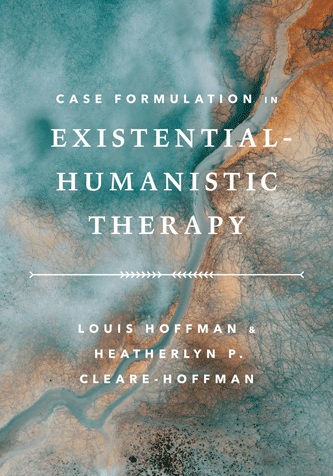Case Formulation in Existential-Humanistic Therapy

Book Details
- Publisher : American Psychological Association
- Published : 2025
- Cover : Paperback
- Pages : 243
- Category :
Individual Psychotherapy - Catalogue No : 98346
- ISBN 13 : 9781433842948
- ISBN 10 : 1433842947
Reviews and Endorsements
Just in time, this volume addresses a gap in the resurging literature on existential–humanistic psychotherapy: the scarcity of guidebooks elucidating existential–humanistic assessment and case formulation. Drawing on an impressive array of quantitative and qualitative research, the authors have managed to put together a practical and philosophically faithful framework that can be readily accessed by both graduate-level trainees and seasoned professionals. In that light I am thrilled to recommend this book as a gateway to an existential–humanistic revival, both in the classroom and the clinic.
Kirk J. Schneider, PhD, editor of Existential-Integrative Psychotherapy: Guideposts to the Core of Practice
Hoffman and Cleare-Hoffman provide an innovative framework for contemporary existential–humanistic case formulation with a liberatory dimension. Drawing on rich clinical illustrations, this unique volume centers sociocultural context in existential–humanistic theory and translates theory to moment-to-moment interactions between client and therapist. It is a must-read volume for practitioners, educators, and researchers interested in a nuanced and holistic understanding of therapeutic process.
Pratyusha Tummala-Narra, PhD, Department of Counseling, Developmental and Educational Psychology, Boston College, Chestnut Hill, MA
I was thrilled to read this book! It makes clear why existential–humanistic approaches are central to any social justice-oriented therapy. The authors provide a foundation of respect in which therapy is tailored to clients within their own cultural contexts and experiences. Reading this book is even better than being able to peer into the sessions of eminent therapists, because you can both see their interventions and hear their thoughts on how best to empower and support clients. Students will love that the framing of the book is centered on focused case examples, allowing for a rich clinical understanding of how EH conceptualization develops across time when working with a client. I have long admired the leadership and expertise that these authors bring to existential–humanistic psychotherapy and appreciate the sensitivity they bring to each page. Students will learn how to apply interventions, but they will learn so much more as well. The text supports them to become truly responsive therapists in the service of their clients.
Heidi M. Levitt, PhD, Professor, Department of Psychology, University of Massachusetts Boston

